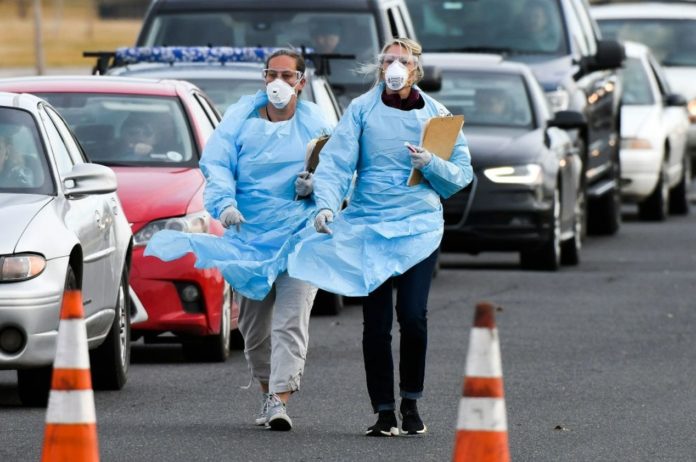A new study confirms earlier findings that American values, attitudes, and behaviours changed dramatically during the COVID-19 pandemic.
A new study conducted by UCLA confirms decisively the results of research released earlier this year, which found that during the COVID-19 pandemic, American values, attitudes, and activities had changed dramatically.
The previous study, which was published in February, was assessed as part of online behaviour, including Google searches and phrases posted on Twitter, blogs, and internet forums.
The latest study, which was published in the open-access journal Current Research in Ecological and Social Psychology, was based on a survey of 2,092 Americans, half of whom were from California and the other half from Rhode Island.
According to the findings, Americans’ activities, values, and relationships have begun to resemble those found in small, isolated villages with low life expectancy, such as an isolated Mayan village in Chiapas, Mexico, which Greenfield has studied since 1969.
According to the survey, people are now more likely to be growing and preparing their own food, conserving resources, showing less interest in financial wealth, and showing greater appreciation for their elders than they were prior to the pandemic. All of these shifts, according to the researchers, are a result of Americans’ increased focus on survival and isolation during the pandemic.
The study also discovered that during the pandemic, parents expected their children to help out around the house more than they did before the pandemic, such as by cooking for the family.
Doctor reveals why some people are having ‘worst cold ever’
The fact that the most recent findings matched those of earlier research on online trends lends credence to both studies.
“The replication of findings using two very different methods gives us confidence that our survey findings indicate actual change,” said the authors.
The authors of the new paper predict that once the pandemic is more fully under control, most people’s behaviors and activities will return to pre-2020 levels. However, they point out that this may not be the case for people in their 20s and younger, whose values are more likely to be permanently shaped by events over the last two years.
Innate immune response may help predict COVID-19 disease severity during early stages of infection
When the study was conducted in late April and early May 2020, Californians and Rhode Islanders had been on stay-at-home orders for a little more than a month, and most survey respondents were still self-isolating.
Among the other findings:
- Respondents reported that, as compared to before the pandemic, they were thinking substantially more during the pandemic about death and dying — including their own mortality and that of their family members, making wills and where they intended to be buried, for example.
- People said they felt greater appreciation for their family and for elderly people during the pandemic than before.
- While study participants said they were more focused than before on having enough money to cover basic needs like food and shelter, people were generally less focused on the goal of becoming rich.
- Respondents reported an increase in the amount of time they spent on activities with other members of the household — shared meals and conversations.
Study reports sharp drop in antibody levels after seven months for double-vaccinated
The study was conducted in California and Rhode Island because, in addition to their differences in size and population, the states provide other useful contrasts: Rhode Island’s population is much less diverse than California’s, and Rhode Island’s COVID-19 mortality rate was five times higher than California’s at the time of the survey.
The findings of the study add to the body of evidence supporting one of the Author’s long-held theories of social change, cultural evolution, and human development, which was published in Developmental Psychology in 2009.
According to the theory, when people are preoccupied with their own survival and their social lives are confined to their own homes, their activities, values, relationships, and parenting expectations resemble those found in small rural communities with low life expectancy.
This new drug combination effectively fights against COVID infection
“The experience of respondents in both states confirmed all of the predicted shifts,” the authors added. “The basic human responses to survival threat and limited contact with strangers have been conserved throughout human history and cultural evolution. This suggests that such reactions could be universal human responses that will be similar everywhere in response to the pandemic.”
To test that theory, the researchers are now examining whether the findings from their studies in the United States are also valid in four other countries: Indonesia, Japan, Mexico, and Turkey.
Image Credit: Getty
You were reading: Study shows how COVID-19 changed Americans’ values and activities
